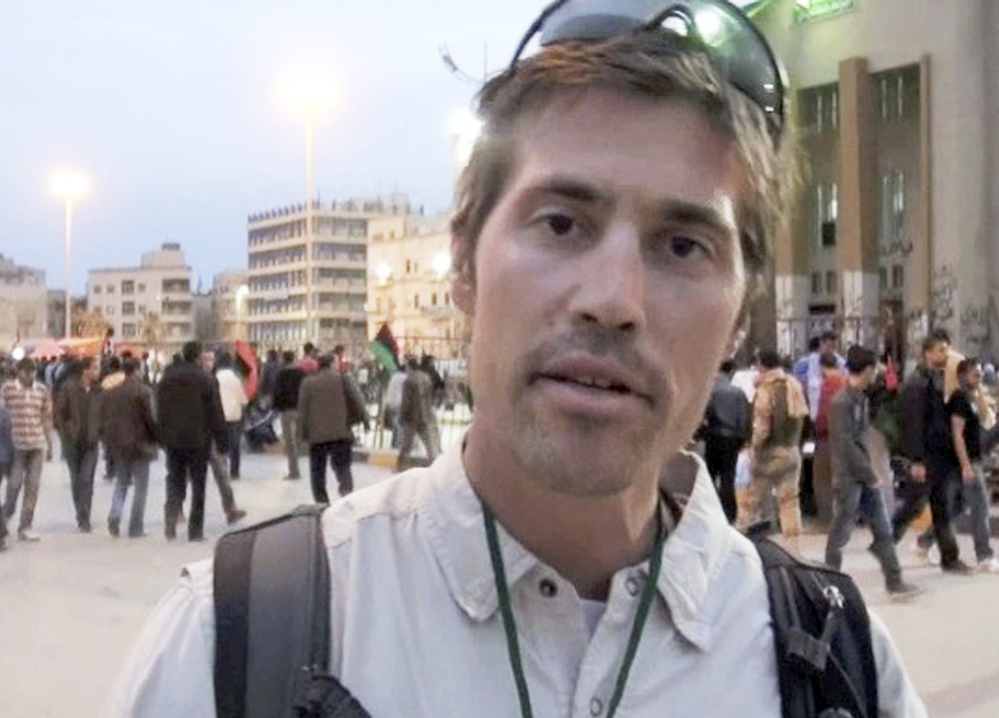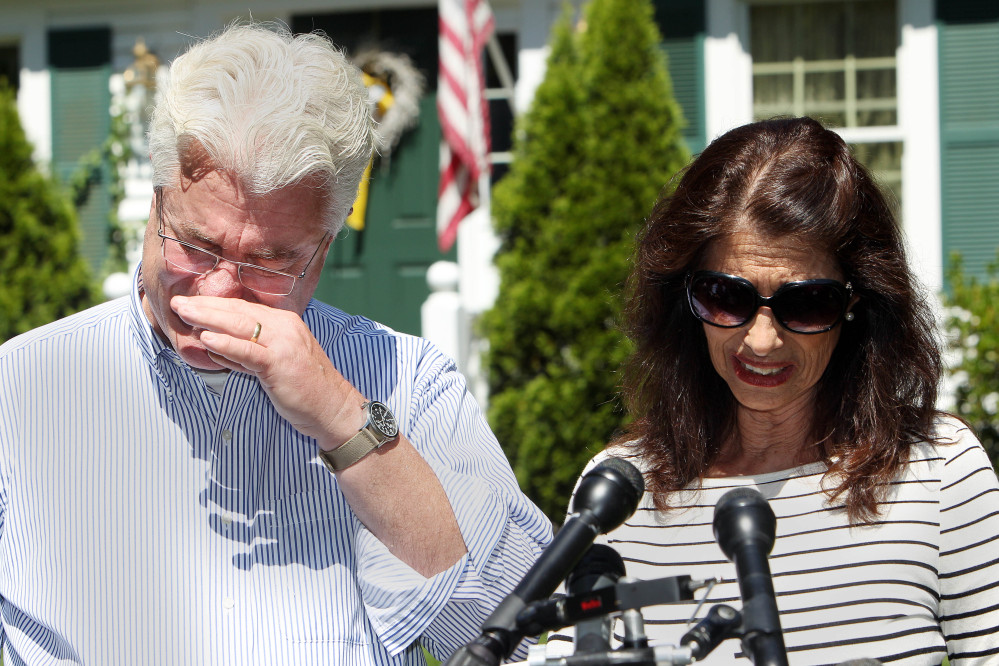Those who knew Northwestern University journalism graduate James Foley remembered him as a fearless photojournalist who dedicated himself to telling the stories of people suffering in combat zones.
Foley was beheaded by Islamic militants in a video that was posted Tuesday and was authenticated Wednesday by the U.S. National Security Council. His whereabouts had been unknown since Thanksgiving 2012, when he disappeared in Syria, where he was working for the Boston-based news website GlobalPost.
Foley, 40, who received a master’s degree from Northwestern’s Medill School of Journalism in 2008, was remembered by professors there as a capable and good-natured person who knew he wanted to cover foreign conflict after coming to journalism as a second career.
“He left one hell of an impression on me,” said Stephan Garnett, who taught Foley in an intensive introductory course.
Garnett remembered his one-time student as dedicated to “disposable people,” such as those hurt in armed conflicts. Foley’s capture in Syria was the second time he had been taken prisoner while reporting on foreign conflicts. The first came in Libya, where he was released in 2011 after 44 days of captivity.
PREPARED FOR CONFLICT JOURNALISM
After that, he returned to Northwestern to give a talk. Garnett said he spoke with Foley then, and the former student gave him an enthusiastic hug. The instructor said he asked if he planned to return to foreign conflict coverage, and Foley said, “Of course.”
“He was a person who had a lot of guts, I tell you that,” Garnett said.
But he wasn’t “some cowboy,” said Medill professor Ellen Shearer, who taught him during a stint with the journalism school’s program in Washington, D.C. He was prepared for conflict journalism, and he produced vivid images, she said.
“He wanted to show the impact of conflict not from the perspective of geopolitics or world leaders but from the perspective of the people being killed, being affected,” she said. “He just really was intrigued by what these conflicts mean on the ground in people’s lives, how they changed the world for people in the midst of them.”
Kelly Janowski wrote on her blog, Kelly the Culinarian, that she went to Medill with Foley.
“This kid was easily the bravest reporter I encountered in my time at Medill — after graduation, he took to the Middle East, fearlessly working to bring to light the tales of atrocities a world away,” she wrote Wednesday morning.
Foley was outgoing and fun, and he tended to address people as “bro” or “dude,” Garnett said. Journalist Clare Morgana Gillis wrote after Foley’s more recent disappearance that he had been generous and even-tempered in her experience working alongside him in the Middle East.
“Everybody, everywhere, takes a liking to Jim as soon as they meet him. Men like him for his good humor and tendency to address everyone as ‘bro’ or ‘homie’ or ‘dude’ after the first handshake. Women like him for his broad smile, broad shoulders, and because, well, women just like him,” she wrote in the online publication Syria Deeply.
Foley was supposed to meet fellow journalist Nicole Tung in a Turkish border town in November 2012 but he didn’t show up, she told Columbia Journalism Review in a story published last year.
“I was starting to worry after 6, 7 p.m., when things were very quiet,” Tung told the publication. “By 10, 11, I knew that something had definitely gone wrong.”
The Islamic State militant group said Tuesday its beheading of Foley came in retaliation for U.S. airstrikes in Iraq.
In a post on a Facebook page set up by the Foley family, his mother said her son gave his life to expose the suffering of the Syrian people, and she made an appeal for other captives of the Islamic militants.
“He was an extraordinary son, brother, journalist and person,” Diane Foley said
Plea for remaining hostages
“We implore the kidnappers to spare the lives of the remaining hostages,” she added. “Like Jim, they are innocents. They have no control over American government policy in Iraq, Syria or anywhere in the world.”
Northwestern released a statement saying the “Medill family is shocked and deeply saddened by the news of the murder of James Foley.”
“Journalists face threats in many forms as they try to report difficult stories that need to be told, but the attack on Jim was barbaric,” Northwestern said in a statement. “It was, in a larger sense, an attack on freedoms necessary in a civilized society and across strained cultures. Jim endures for us as a beacon reminding us of the risks implicit in shedding light where inhumanity can take hold.”
While attending Medill, Foley worked as a language arts teacher at the Cook County Sheriff’s boot camp program for four or five years, said Cara Smith, executive director of the Cook County Jail. The program is an alternative to a state prison sentence. Foley was fluent in Spanish and believed strongly in using education to reduce recidivism.
“Jim dedicated his life to serving others and effecting change,” Sheriff Tom Dart said in a statement Wednesday. “We thank him from the bottom of our hearts for his service and for all he did while working with us and for all he did to shine a light on the injustices and suffering in the world.”
Marquette University in Milwaukee, where Foley got an undergraduate degree, said it was “deeply saddened” by the news and added: “James … had a heart for social justice.”
Copy the Story LinkSend questions/comments to the editors.




Success. Please wait for the page to reload. If the page does not reload within 5 seconds, please refresh the page.
Enter your email and password to access comments.
Hi, to comment on stories you must . This profile is in addition to your subscription and website login.
Already have a commenting profile? .
Invalid username/password.
Please check your email to confirm and complete your registration.
Only subscribers are eligible to post comments. Please subscribe or login first for digital access. Here’s why.
Use the form below to reset your password. When you've submitted your account email, we will send an email with a reset code.